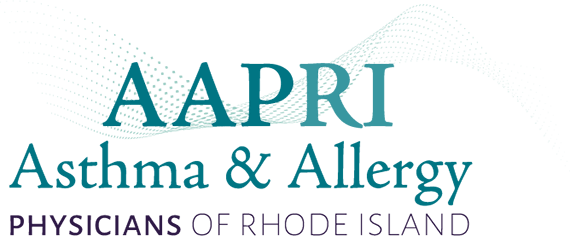Handling outdoor allergens in the springtime
Spring has sprung, and what a lovely thing it is! With its longer days and warm weather, what’s not to love? Well, if you’re an allergy sufferer, the answer can be— plenty! Outdoor allergens like pollen are exploding and everything’s in bloom. Your sinuses are so stuffed you can barely remember being able to take a clear breath. And you sometimes wonder if you see your inhaler more than you see your friends. Yes, this time of year can seem tough for those of us who are of the allergic persuasion.
Conquer Outdoor Allergies: You Can Do This!
You may envision yourself spending the next few months hidden away in some super sterile clean-room, wearing a pollen mask, breathing only filtered air, surrounded by crumpled tissues, and missing out on all the fun that comes with nice weather. Well, relax a bit! With a little bit of planning and by following some simple tips, you can get those allergies in check and rule over pollen, be the master of the backyard barbeque, queen of nature walks, king of the great outdoors!!! (Sorry, we get a little over excited sometimes…)
Top Tips for Handling Outdoor Allergens:
- The air out there: Before heading out, check the air quality for the day with sites like pollen.com by the National Weather Service or AirNow.gov by the EPA. If the pollen count is through the roof, it may be wiser to pick, say, a trip to the movies over a hike. If the air looks clear, it’s a good day for outdoor activities.
- Hit the showers: Pollen sticks to you and your clothing, so be sure to shower (including washing your hair) at the end of the day and change all of your clothes when coming inside.
- Kick off your shoes: To avoid tracking allergens all over your house, remove your shoes at the door (and ask guests to do the same).
- Clean house: Use a vacuum with a HEPA (high-efficiency particulate arrestance) filter to clean your floors. Wash your and your family’s sheets, pillows, pillowcases, stuffed animals, blankets, etc on the hottest possible setting. Make sure bathrooms and kitchens, which can breed mold and fungus, stay clean and dry. Basically, the cleaner your house is, the less allergens there will be!
- Keep those windows shut: Using an air conditioner instead of open windows and fans can prevent lots of pollen and other outdoor allergens from creeping inside. Remember to clean the air conditioner’s filter frequently. Consider purchasing a whole-home HEPA air filter system for even more air filtration.
- Play ball: If you’re an athlete (or the parent of one), check out our blog on spring sports and allergies to learn all about how to cope with outdoor allergens while still giving it your all on the field or court.
- An ounce of prevention…: Take your daily allergy medication, and always have emergency medication with you. Keep on top of refills and doctor’s appointment. Don’t wait until the last minute!
- Delegate outdoor chores: Try to avoid things like weeding and lawn mowing— they kick up pollen and allergens like crazy! Instead, volunteer to take over inside chores, like vacuuming, dishes, etc. And remember to never hang laundry to dry outside— it will get covered in pollen.
Follow this Rule
Speaking of yard work, this leads us nicely into the absolute, most important outdoor allergen rule you must always always follow…
- Do not burn poison ivy, poison oak, or poison sumac!!! Getting rid of unwanted yard refuse by burning it may seem like a good idea, but it can be extremely dangerous. Poisons oak and ivy as well as poison sumac can be life-threatening if inhaled when burned. Yes, even if it’s only a little and you only inhale indirect smoke. These three plants can hide with other plants or get mixed in with raked leaves or stacked firewood, so you may not even realize you’re burning them.
Not to mention the fact that some towns have ordinances prohibiting burning yard waste. To be on the safe side, bag up your leaf piles and yard debris and dispose of it according to your town’s rules. If you or someone you know thinks they accidentally burned these plants and breathed in the smoke, call 911 or go to the hospital immediately and watch for signs of respiratory distress.
See? That’s not so bad! By following these basic tips, you can cope with outdoor allergens. You can have a wonderful spring and summer, and have a super clean house to boot! And don’t forget that we at AAPRI are always here to help with all things asthma and allergy. Come see us for medication refills, up-to-date diagnoses, advice, and support.

